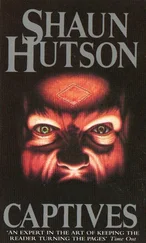Norman Manea - Captives
Здесь есть возможность читать онлайн «Norman Manea - Captives» весь текст электронной книги совершенно бесплатно (целиком полную версию без сокращений). В некоторых случаях можно слушать аудио, скачать через торрент в формате fb2 и присутствует краткое содержание. Год выпуска: 2014, Издательство: New Directions, Жанр: Современная проза, на английском языке. Описание произведения, (предисловие) а так же отзывы посетителей доступны на портале библиотеки ЛибКат.
- Название:Captives
- Автор:
- Издательство:New Directions
- Жанр:
- Год:2014
- ISBN:нет данных
- Рейтинг книги:3 / 5. Голосов: 1
-
Избранное:Добавить в избранное
- Отзывы:
-
Ваша оценка:
- 60
- 1
- 2
- 3
- 4
- 5
Captives: краткое содержание, описание и аннотация
Предлагаем к чтению аннотацию, описание, краткое содержание или предисловие (зависит от того, что написал сам автор книги «Captives»). Если вы не нашли необходимую информацию о книге — напишите в комментариях, мы постараемся отыскать её.
Captives
This is a moving account of a country shaken by communism and anti-Semitism and haunted by recent atrocities, from "a distinguished writer whose vision of totalitarianism is close to Kafka's cloudy menace, universal yet internalized" (Richard Eder,
).
Captives — читать онлайн бесплатно полную книгу (весь текст) целиком
Ниже представлен текст книги, разбитый по страницам. Система сохранения места последней прочитанной страницы, позволяет с удобством читать онлайн бесплатно книгу «Captives», без необходимости каждый раз заново искать на чём Вы остановились. Поставьте закладку, и сможете в любой момент перейти на страницу, на которой закончили чтение.
Интервал:
Закладка:
The snow crunched underfoot. The freezing air burned my cheeks. When I entered the dorm room, my eyelashes melted. Droplets rolled down my cheeks. Sebastian Caba was playing backgammon with his roommates. Perched on the bed in a blue tracksuit, he’d wrapped his legs around the backgammon board, and his long, slim fingers shook the dice like magic beads.
My entrance gave rise to a certain amount of movement. From the bed near the door, one of the classmates signaled to me by waving his algebra book. He’d solved only half the problem assigned. I spent a quarter of an hour with him, and a few people had come to see what we were doing with the algebra. Only Caba and his adversary remained at the board. Eventually the dice rolling slowed down. I heard them hastily counting points. I stood. I spoke with our classmates a while. When the backgammon players joined our group, I told them all to let the dorm administration know that they would be late for supper the following day, that the staff should hold onto their meals. Then, since it was the eve of Caba’s induction to the organization, his roommates started joking about him, the future hero, whom they cornered pretty well. Caba managed well, though, and even if he was on the defensive, he held his own. His replies were more powerful than the stings we honored him with, but such a lively reversal of circumstances didn’t come as a surprise to his roommates or me. He always lived up to the faith they all had in his charm and lively wit, and he rose to their expectations this time, too. As for me, I’d put my faith in the future hero’s cottoning on quickly when I pointed out that tomorrow’s meeting would take longer than usual, so they’d be late for dinner. Our classmates sensed that even though we weren’t friends, I had a closer connection with him, and he responded to my interest. Such amicability presupposed a certain complicity. While I wasn’t making a public show of friendship, I never denied it either.
So, he conducted himself properly. The moment I moved to go, he thrust his feet into slippers to walk me out, and for a few moments we remained together by the dorm’s wooden door, each waiting for the other to say the words the circumstances required. I wasn’t sure I’d succeed in accomplishing my plan to flush him out of hiding. That would have cost a threat or a promise, but Caba raised his arm and leaned his thin white fingers against the brown door. He sighed and told me that the food in the dorms had become unbearable. He wanted to make an official complaint about this and was hoping his new friend would understand or maybe even intervene. The food in the dorm was unbearable, and as usual he had found the exact but moderate, inoffensive expression to lodge his protest in a decent way. It would have been excessive to affirm that he could no longer stand the food: he merely supplied impersonal information. He leaned his arm on the wooden doorframe, waiting for me to reply, or rather waiting for us to part in a friendly way. I looked into his eyes expecting him to say — once, twice, three times, like some deeply idiotic lament — that he couldn’t stand the food anymore, not to mention his cold and filthy room, the stuffy air, the noise, the squalor and fatigue of a boarder’s life. The food was unbearable, but he didn’t say he couldn’t stand it anymore. I kept waiting for him to repeat the impersonal expression that he’d chosen — proving through obsessive repetition that it was his responsibility, that the weight was on his shoulders, that he was among those who felt the consequences of the situation. Except he knew it was insulting and pointless to repeat the same thing over and over again, especially since the person he was talking to had avoided saying anything about it. He recoiled from repeating himself like a maniac. He didn’t say he couldn’t stand the food anymore, or that he couldn’t stand the cold or the fog or the typewriters or the stupid moon up in the sky or the building’s green roof anymore. That kind of tearing of a passion to tatters would only signal abandonment to the ridiculous, to childishness, to distorted ways of speaking — harbingers of maladaptation, isolation, perdition. I understood: he would repeat nothing. He spread out his fingers on the doorframe, having proven that he knew one’s expectations had reasonable limits — and the point when silence becomes a bother.
So he asked me if tomorrow’s math problems were really hard. Smiling, I told him to copy the answers from the notebook of our classmate near the door. I slammed the door. I shouldn’t have answered at all. I particularly shouldn’t have smiled at him before my final salute, full of promises as it was. Still, having learned to slam doors decisively, I slammed the door on time.
I’d granted the coward one last chance before cutting off his head, and tomorrow I’d crow and cackle over his corpse, like a coward.
• • •
The building with towers and narrow windows drew closer. There was no one on the street. Looked back again. No one. No one would be able to discover my fear of killing, cheating, running away, maintaining the truth, going to battle for it. . no one would be able to discover my fear of the pursuers’ long arm and the pain of death.
I didn’t want to bring anything to its conclusion or know that I was killing or lying out of fear. Dona and Eva were keeping watch. I knew it. They had guessed that I was fed up with being the favorite of fortune; so many times we had been loath to hold out against death any longer, to delay it further: it took so much power, oh, so much power, and so much lying to stay alive. Their shaved heads were suddenly near mine again. We were gathered together, three shorn heads, transparent as ghosts, three lifeless heads, frightened that we would have to be patient for another hour, another week. I had repeated this every day: all it takes is another day, another night, another week, an hour, an eternity, just that much, just that.
Later, in the long office choked with smoke, amid the clatter of voices like horse hooves and the patter of typewriters. . when sloth, tiredness, and renunciation dragged me down, and the days and weeks and tiredness had to be resumed again, it would be necessary to repeat the same exhausted refrain: I cannot, anymore . I have to break the lie, live innocently, simply, defend, adorn myself in the truth, to fire at the lie called Monica, the sublime Sebastian, Captain Zubcu’s death, the parents and siblings eager to escape, to catch me in their stealthy game, in their guilty pleasures, in the complicities of survival, and the lies and the collective autism.
But back then, I would have to find Father and become his son again. . Maybe, I thought, maybe he won’t repeat “ have to ” again today. Maybe he’ll become my father again, so that I can admit all my mistakes, tiredness, sloth, and terror — the iniquities, the sins, the lies. Suddenly, he’ll understand that having swallowed everything, duplicities had grown inside him, between thought and speech, as they have in me. He’ll recognize himself in his son, and will have the courage to be satisfied with our mutual guilt, happy that we’ll change, that we’ll purify ourselves and live innocently.
Looked back again: no one there. The porter signaled me with two fingers and pointed to the second floor. The former Austrian town hall had wide, marble steps and thick balustrades. Arrived on the second floor. Two symmetrical corridors. Chose the one on the left. Uniform, polished doors. Opened the first door on the right. Two desks, identical, both covered with red canvas. Atop one of the desks there was a book in a pocket edition. On one of the tables, a telephone. Opened the other door across the corridor. Two desks arranged at right angles. Opened the other door on the right, the next door on the right. Nothing. No one. Uniform décor. Opened my overcoat, loosened my muffler. Reached toward the book. Recognized it. Knew the sacred biography it contained by heart. Closed the door. My feet sank into the carpet — like stepping into a swamp. There were five more doors on the left, five on the right. Symmetry. Somehow found myself again at the head of the stairs. Was about to climb back down the stairs when the end of the corridor exploded. Boom-Boom! Boom-Boom! Voices went on chanting the sacred name from the sacred Kremlin. Now I knew which way to go. Father would be there, yelling with the rest, frozen in the barrage. A pattering of applause followed, like the rapid clapping of the rain, like the rush of typewriters. Entered noiselessly. They didn’t see me. They were all looking at the orator, and even he didn’t notice me. Stooped to the height of the chairs. Slipped along to the last place on the right, near the window. It was unnaturally warm, my forehead and body dripped with sweat.
Читать дальшеИнтервал:
Закладка:
Похожие книги на «Captives»
Представляем Вашему вниманию похожие книги на «Captives» списком для выбора. Мы отобрали схожую по названию и смыслу литературу в надежде предоставить читателям больше вариантов отыскать новые, интересные, ещё непрочитанные произведения.
Обсуждение, отзывы о книге «Captives» и просто собственные мнения читателей. Оставьте ваши комментарии, напишите, что Вы думаете о произведении, его смысле или главных героях. Укажите что конкретно понравилось, а что нет, и почему Вы так считаете.












